The legislation paves the way for applications of first automated commercial vehicles and work machines with the 39th amendment to the Motor Vehicle Act (KFG 1976).
Until now, testing automated commercial vehicles has only been possible to a limited extent. One of the major hurdles up to now has been legislation. At the end of last year, DigiTrans GmbH worked together with Reform-Werke on an amendment to the law that is unique in Europe and represents a significant step in the right direction.
„The change in the KFG offers numerous opportunities for the sustainable development of our cities, traffic safety as well as the industrial and research location“. (Eva Tatschl-Unterberger, Managing Director of the test region DigiTrans GmbH).
What has been changed in detail to enable the testing of automated work machines and commercial vehicles in public spaces
Under the §96 of the KFG 1976 was added that motor vehicles with a design speed of less than 10 Km/h can also be executed without a place for the driver. In this case, the vehicle must be operated by remote control. The person driving the vehicle must be near the vehicle in order to be able to intervene in dangerous situations if necessary. The person is considered to be the driver and must be able to bring the vehicle to a halt using an emergency switch. More details can be taken directly from the Federal Law Official Journal.
Advantages of the changes for testing automated
working machines and commercial vehicles.
For research projects in the field of automated work machines and commercial vehicles, the amendment opens up a wide range of new testing opportunities. One of these research projects, for example, is the AUTILITY project. The main task of AUTILITY is to research, test and further develop the key technologies required to enable automated transport and work processes. Using innovative technical methods, a multifunctional equipment carrier from the company Reform is to be further developed for automated use and tested under real conditions on a closed factory site.
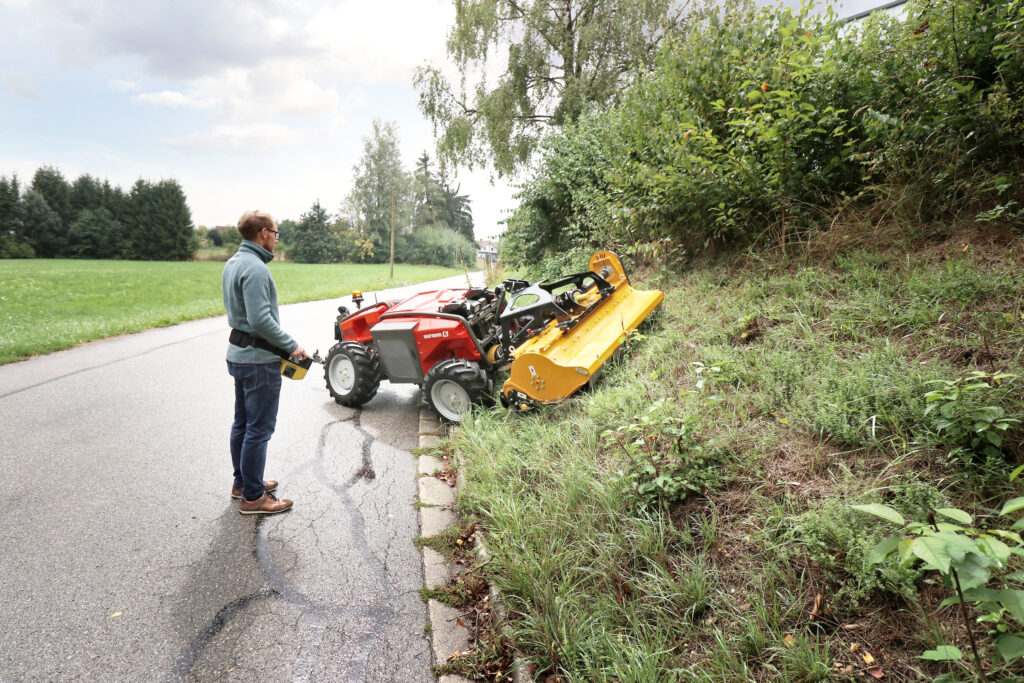
© Reform-Werke Bauer & Co Gesellschaft m.b.H.
The Metron implement carrier from Reform in test use. The driver can monitor and control the vehicle comfortably and safely.
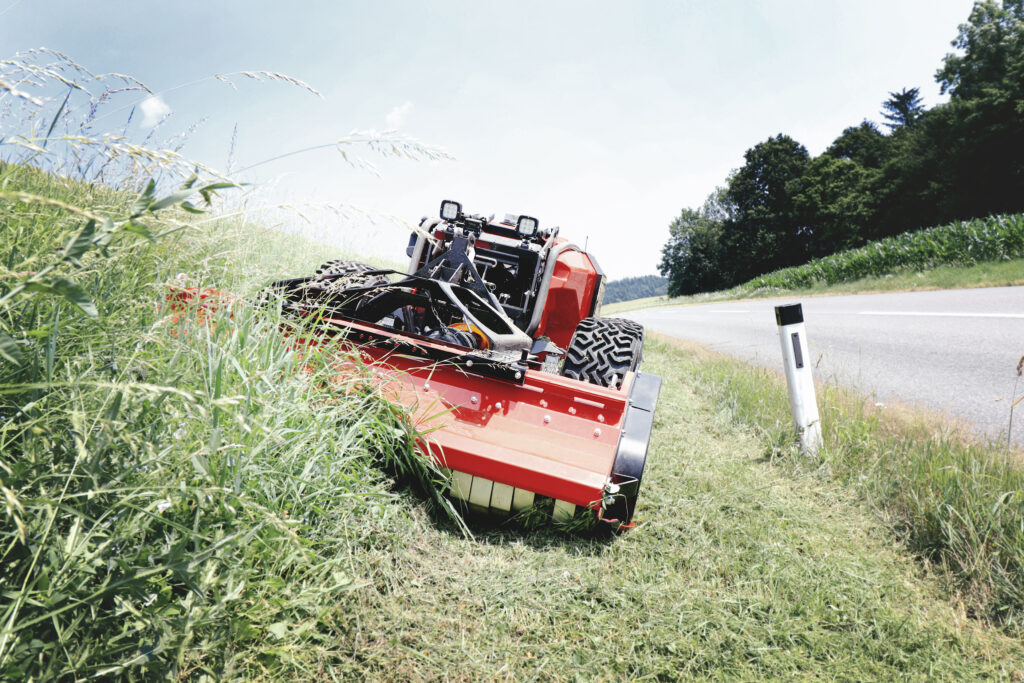
© Reform-Werke Bauer & Co Gesellschaft m.b.H.
Automated equipment carrier at work. This can reduce a variety of hazardous work processes.
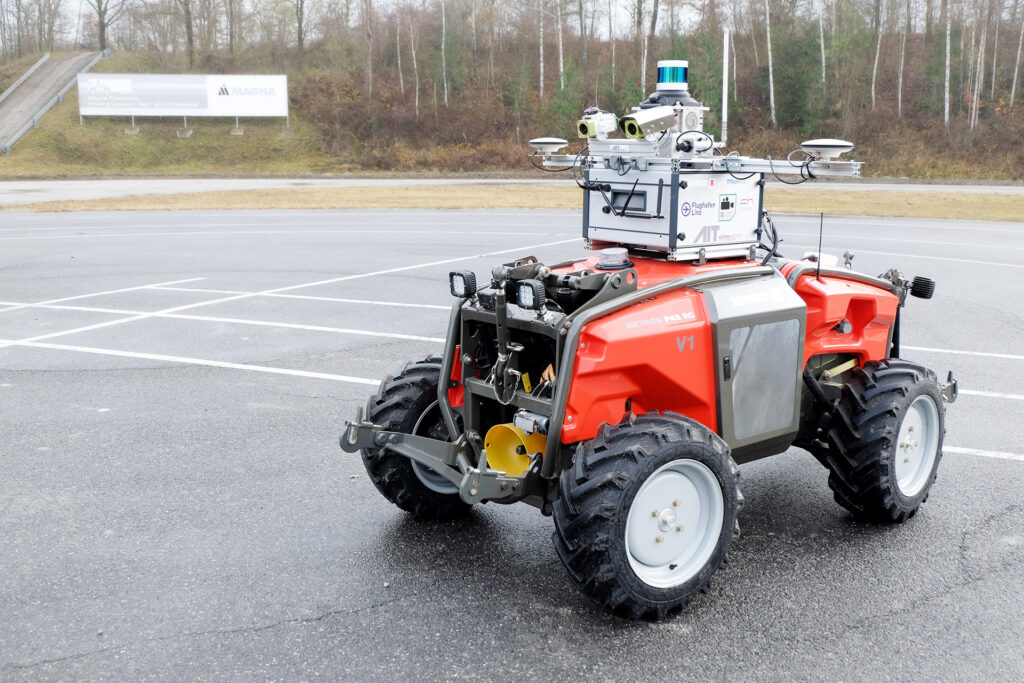
© AIT Austrian Institute of Technology GmbH
The equipment carrier can be equipped with numerous attachments such as stereo cameras and lidar sensors for testing purposes.
With the amendment to the KFG, a large number of further use cases in the field of automated municipal services can also be tested and implemented in public transport . People’s work can be greatly facilitated by such automated utility vehicles. Municipal services employees no longer need to go directly into the danger zone to maintain green areas next to roads and highways, but can conveniently and safely monitor and control the equipment via a remote condition. In the last mile delivery sector, the change in the KFG also opens up many opportunities for initial tests and applications in the field of small delivery vehicles in Austria’s cities. Digitrans plans to test first use cases in both areas in Austria.
You might also be interested in
Further Insights
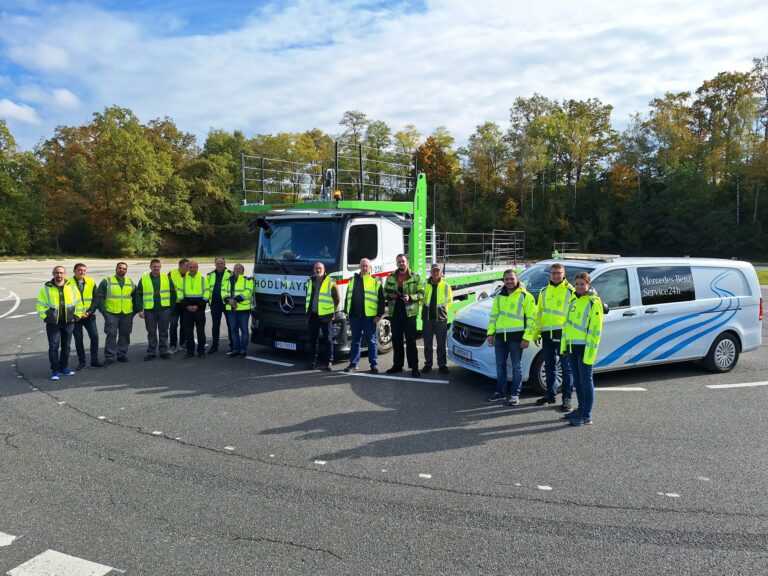
Truck driver assistance systems – ADAS training sessions at the Digitrans test center for autonomous driving
At the ADAS training session on the proving ground in St. Valentin, truck driving instructors from Hödlmayr were able to learn more about truck driver assistance systems and test them in practice in the safe environment of a proving ground.

Automotive Testing Technology International Awards 2022 – Proving Ground of the Year 2022 – Digitrans shortlisted
The Digitrans Test Center for Automated Driving, with its innovative expansions on the proving ground in St. Valentin, has managed to be shortlisted for the award “proving Ground of the Year 2022”, alongside numerous other exciting test sites and test tracks from around the world.
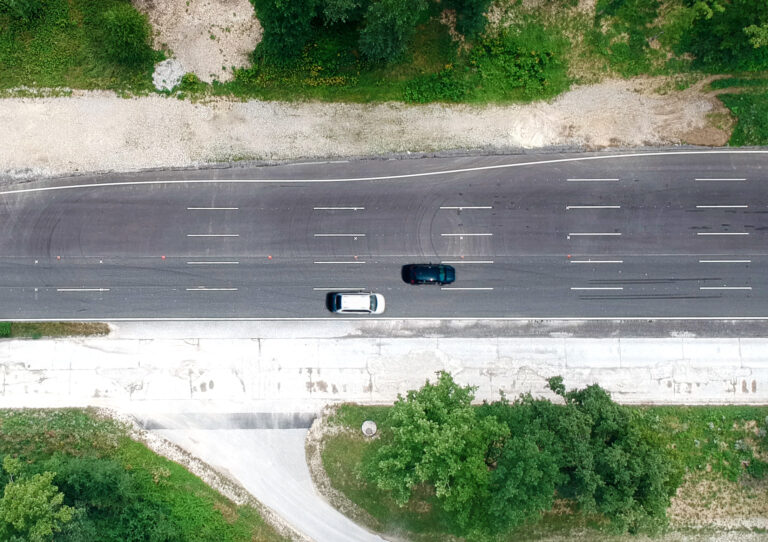
Tests of driver assistance systems at the Digitrans Test Center on the proving ground in St. Valentin
On August 9, application-based practical tests with driver assistance systems were carried out at the Digitrans Test Center in St. Valentin on behalf of AustriaTech in cooperation with Graz University of Technology and Factum as part of the research project “Road Safety and Automated Mobility M7174”.
